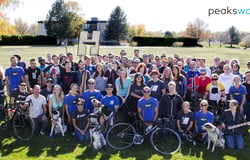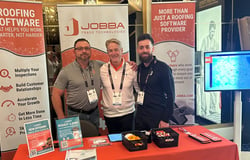Job Summary:
As a Product Specialist Engineer, you will play a key role in bridging the technical aspects of our products with customer needs. You will collaborate with cross-functional teams, including product development, and sales, to ensure the successful implementation and integration of our products. Your expertise will contribute to customer satisfaction, product improvement, and the overall success of our offerings in the market.
Key Responsibilities:
Technical Expertise:
- Develop and maintain a deep understanding of the technical aspects of our product, including features, functionalities, and integration points.
- Stay informed about industry trends, emerging technologies, and best practices related to our product.
Customer Engagement:
- Act as a technical liaison between customers and internal teams, addressing inquiries, resolving issues, and providing technical support.
- Assist customers with the integration of our products/services into their existing systems.
- Troubleshoot integration issues, identify root causes and provide effective resolutions.
- Collaborate with cross-functional teams, including developers and product managers, to address complex integration challenges.
- Collaborate with the sales team to understand customer requirements and assist in pre-sales technical discussions.
Customer Communication:
- Act as a point of contact for customers with integration-related inquiries or concerns.
- Communicate effectively with customers to gather information about integration requirements and challenges.
- Provide clear and concise instructions, documentation, and guidance to customers on integration processes.
Technical Troubleshooting:
- Analyze logs, error messages, and other diagnostic information to diagnose and resolve integration issues.
- Work closely with the development team to escalate and prioritize issues that require code-level solutions.
- Document troubleshooting steps and resolutions for future reference.
Training and Documentation:
- Create and maintain technical documentation related to integration processes, troubleshooting steps, and best practices.
- Contribute to the development of knowledge base articles and FAQs for common integration issues.
- Conduct training sessions for internal teams and customers to enhance product understanding and usage.
Qualifications:
- Bachelor’s degree in Computer Science, Information Technology, or a related field.
- Proven experience in a technical role, such as software engineering or technical support.
- Understanding of API technologies, protocols, and data formats (e.g., REST, JSON, XML).
- Experience with troubleshooting tools and methodologies.
- Excellent problem-solving and analytical skills.
- Strong communication skills, both written and verbal.
Preferred Skills:
Experience with open-source agents for collecting telemetry (e.g., Fluent Bit, Telegraf, OpenTelemetry).
- Knowledge of scripting languages for automation and customization.
- Experience building/maintaining codebases in modern programming languages.
- Experience working with at least one cloud provider (e.g., AWS, Azure, GCP).
- Familiarity with version control systems (e.g., Git).
- Knowledge of CI/CD workflow tools (e.g., Github Actions, Jenkins).
Top Skills
What We Do
Observe was founded by Sutter Hill Ventures in November 2017. Our founding team came from leading Enterprise SaaS and software companies that work with vast quantities of data such as Snowflake, Splunk and Wavefront.
Our founding thesis was that the enterprises are data rich, but information poor. Data is siloed making it difficult to understand what’s going on inside applications and infrastructure. The result is often a poor customer experience and wasted engineering time tracking down incidents. Oh, and it costs a fortune.
Observe discerns why applications and infrastructure are running the way they are from the data they emit. We enable engineers to spend more time coding features and less time investigating incidents. We reduce outages and issues with customer experience. And we leverage an elastic cloud architecture so that you only pay for what you use.








